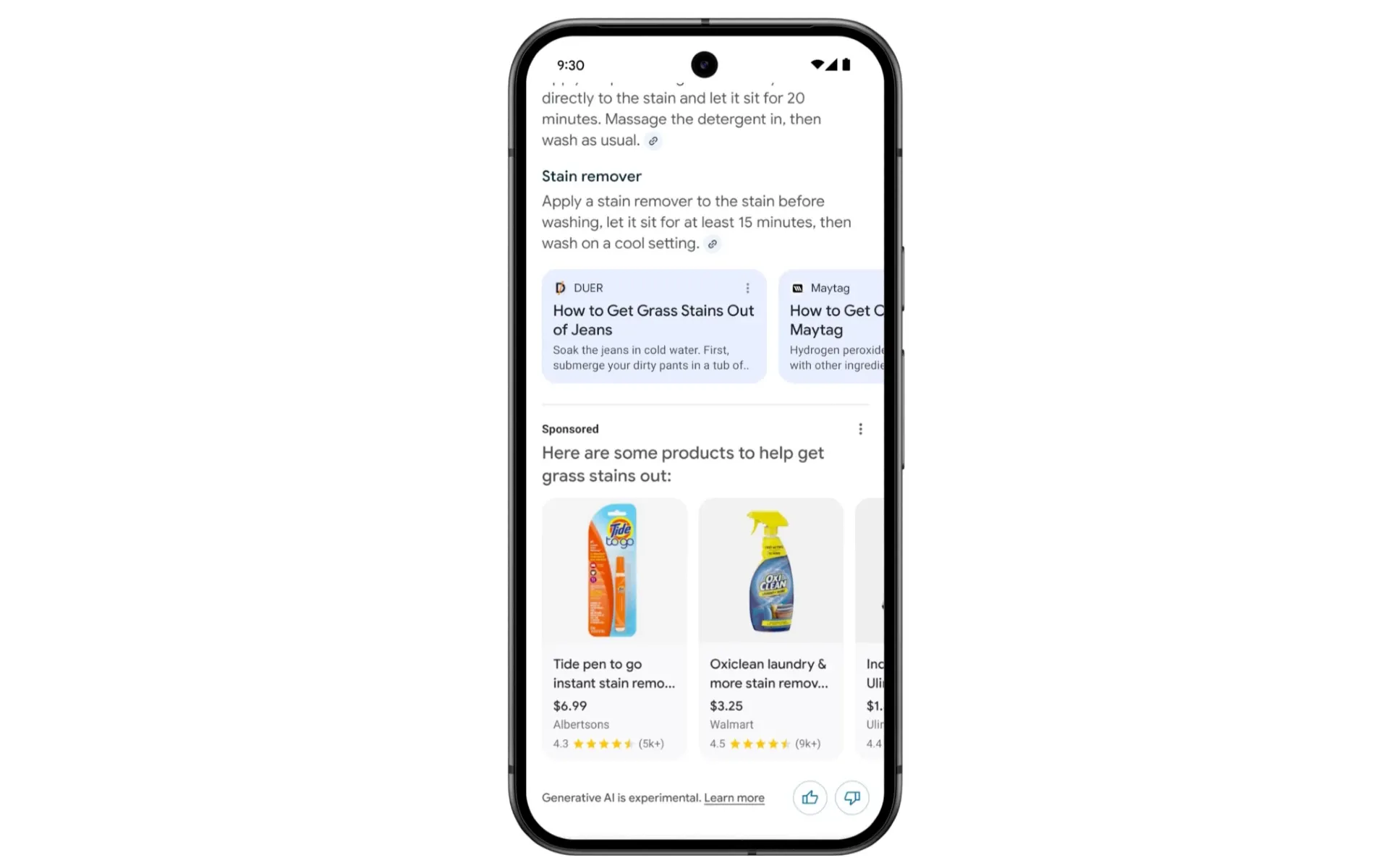When I joined Google a decade ago, search was the unquestioned bread and butter of digital marketing. A whole industry of agencies was built around SEO and SEM, and no one questioned its effectiveness. Recently though, with AI tools like Perplexity and ChatGPT gaining popularity, we're seeing more and more headlines declaring "search is dead."

So today we're addressing the elephant in the room: are search ads still relevant? Spoiler alert: they are, and they're not going away.
Advertisers only pay when consumers click through to their website
I think this is where most confusion comes from: most people aren't familiar with Google search ads' pay-per-click business model, which works like this:
- NOT CHARGED: when Google displays your search ads → free impression
- NOT CHARGED: when a user sees your ad but doesn't click on it → free impression
- CHARGED ONLY: when a user searches for a relevant term, sees your ad, and decides to click through to your website
It's a completely different model from awareness ads (like TikTok, Instagram, or YouTube) which charge whenever an ad is displayed, making it much easier to exhaust your marketing budget. With search ads, you're paying for actual website visits. If nobody is searching for your designated terms or clicking your ads, you're not paying a cent. Even if overall searches for your product category were to fall, your ad spend would drop correspondingly, the efficiency remains intact.
Search ads remain the highest ROAS option for marketers
Search ads don't just spend less, they also yield a much higher return on ad spend (ROAS). For those new to marketing, let me explain the basic marketing funnel:

The further down the marketing funnel, the more targeted the audience and the higher the ROAS. Social ads like TikTok and Instagram generally lean toward awareness: the creative content introduces you to a brand, which then builds interest and eventually leads to a purchase decision.
Search ads are intent-based advertising: you see Uber Eats ads only when you're searching for specific terms like "food delivery," "Uber Eats," or "Deliveroo." They sit much lower in the marketing funnel near consideration, capturing last-mile actions before purchase.
If you're a small business with limited budget, search ads are almost always the most efficient channel. For e-commerce brands, social can be effective for customer acquisition, but if you run a local service business say, plumbing, the majority of your customers will find you through search. Skip search ads, and you're missing the lowest-hanging fruit.
Search ads are evolving with AI, not dying from it
Here's what's actually happening: search ads are integrating into AI experiences, not being replaced by them. Google launched AI Overviews (Gemini-powered snippets at the top of search results) in May 2024. While you might think this means nobody clicks the ads below, Google shared in recent earnings calls that these AI-enhanced pages "monetize at roughly the same rate" as traditional search results. Plus, AI Overviews are now starting to embed search ads directly in the US.
Google's also launched new AI Max for Search Campaign that expand keyword coverage into these AI Overviews, with early beta testing showing a 14% lift in conversions at steady cost per acquisition (CPA). Even Perplexity started experimenting advertising in late 2024, and the company confirmed that monetisation experiments will broaden as it scales.
Far from shrinking, the search advertising ecosystem keeps growing:
- Google now processes over 5 trillion searches annually (up from 2 trillion in 2016)
- Google.com remains the world's most-visited site with ~81 billion monthly visits (SimilarWeb)
- Google's "Search & Other" revenue hit $50.7 billion in Q1 2025, up 10% year-over-year
- Statista projects that ad spending is anticipated to demonstrate an annual growth rate (CAGR 2025-2029) of 8.30%, leading to a projected market volume of US$483.55bn by 2029
The real question isn't "if" but "how"
The search landscape has undeniably changed. But that doesn't mean search advertising is going away, it's relocating and evolving within AI-enhanced experiences. Instead of abandoning search ads, the important question becomes: how can our search ad strategies stay competitive in this new user behavioural landscape?
In our next newsletter, we'll introduce Google's new AI-powered search campaigns and share seven practical tips for mastering your search performance in 2025. Ready?
Other Articles You May Like
Engaging articles to enhance your digital marketing strategies.



